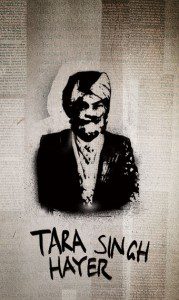Index relies entirely on the support of donors and readers to do its work.
Help us keep amplifying censored voices today.
Vladimir Osechkin, 30, has become one of Russia‘s most successful freedom of expression advocates.
The former businessman fell foul of Moscow’s regional authorities in 2007, Osechkin claims he was asked to pay numerous bribes after he began building one of the biggest automobile sales centres in the area. He reported these extortion attempts to the prosecutors office. Controversially Osechkin was then charged with fraud, a claim he believes was trumped up to punish him for refusing to pay bribes. He was detained for almost four years in Mozhaysk pre-trial prison. It is worth noting that since Osechkin’s 2007 arrest, many of his accusers have faced criminal suits and corruption accusations.
When Osechkin was released on parole in June 2011 he had two goals: exoneration and to fight for prisoners’ rights, namely their freedom of expression.
He began by creating Gulagu.net (“no to GULAG”), where prisoners’ relatives, attorneys and penal system workers could register and post details of violence in prisons and suggest ways to confront abuse. The information provided can then be investigated by Russian prosecutors.
It is common that prisoners’ voices cannot be heard outside prison, Osechkin explains. Prison authorities often tear up prisoners’ written complaints in front of them and resort to beating those who dare complain. In August 2011 inmates in Mozhaysk were beaten and refused appropriate medical care. Records of their complaints of cruel treatment were allegedly destroyed by prison authorities so that no investigation would be launched.
This led to Osechkin’s first major campaign. Alongside inmates’ relatives, a whistleblowing prison staffer called Alexey Ivanov, turned to Osechkin for legal assistance and help publicising their plight. Osechkin published their evidence on gulagu.net and convinced other prison staff and former inmates to come forward. He sheltered Ivanov, who was threatened by his bosses after he gave evidence to prosecturos, and sent the statements detailing other allegations of abuse he had received to the Moscow region’s Prosecutor’s Office and Investigative Committee.
The result was outstanding. An investigation was launched, prison head Vyacheslav Melnik was removed from his position, the beating and physical abuse of prisoners ended and inmates were given a chance to complain to prosecutors, who began prison inspections.
Osechkin says that, while Russian non-governmental supervisory committees also conduct prison checks and are required to report on and investigate prisoners’ rights abuses, they frequently turn into circus shows. Supervisors are told how perfect the prison is and inmates are often threatened physical violence for expressing their concerns. Once supervisors accepted two iPhones from one of Russian big prison’s deputies, Osechkin recalls. Having been caught on the prison’s video cameras, the supervisors would likely face a bribery accusation if they were to report inmates’ rights abuses.
The Mozhaysk Investigative Committee is due to make a decision about filing a criminal case against the prison head and his deputies. If it files the case, Osechkin’s struggle for prisoners’ freedom of expression may well trigger real change in the Russian penal system.
If not, there is one thing he has achieved permanently: he has created an online space where all Russian prisoners’ complaints about brutal treatment can be documented without fear of censorship.
 MURDERED 18 NOVEMBER 1998
MURDERED 18 NOVEMBER 1998
Tara Singh Hayer, Publisher, “Indo-Canadian Times” — Canada
Join us in demanding justice for Tara Singh Hayer. Already paralysed from an assassination attempt 10 years earlier, Hayer was shot to death outside his home on 18 November 1998. A week before his death, he said ominously, “If they get me, they get me. There’s nothing I can do and I’m not going to stop my work.” Hayer’s murder appears to be connected to his investigation into the 1985 bombing of an Air India flight, which resulted in the deaths of all 329 passengers and crew. Hayer had made statements to police that would incriminate members of a militant Sikh separatist group.
Police were accused of failing to provide Hayer with adequate protection, mismanaging his case, and dismissing the possibility of a link between Hayer’s death and the bombing. Hayer’s case is the first and only case of a journalist murdered specifically for his work in Canada. It remains unsolved.
International Day to End Impunity is on 23 November. Until that date, we will reveal a story each day of a journalist, writer or free expression advocate who was killed in the line of duty.

Hungary’s media regulations have created an atmosphere of tension among journalists. Mike Harris reports from Budapest
Date: Tuesday 6 Dec
Time: 6.30 – 8pm
Venue: Imperial College London, South Kensington Campus, Mechanical Engineering Building, Exhibition Road, London SW7 2AZ
Tickets: Free but limited – register here
Join Index on Censorship for ‘Data Debate: is transparency bad for science?’, a panel debate to launch the new issue of Index on Censorship magazine, ‘Dark Matter: what’s science got to hide?’
Scientific data is more freely available than ever. But does the push for openness help or hinder science?
Speakers include Sir Mark Walport, Director of the Wellcome Trust, George Monbiot, Guardian columnist and Baroness Onora O’Neill. Jo Glanville, Editor of Index on Censorship, will chair.
Many thanks to SAGE for their kind sponsorship of this event.